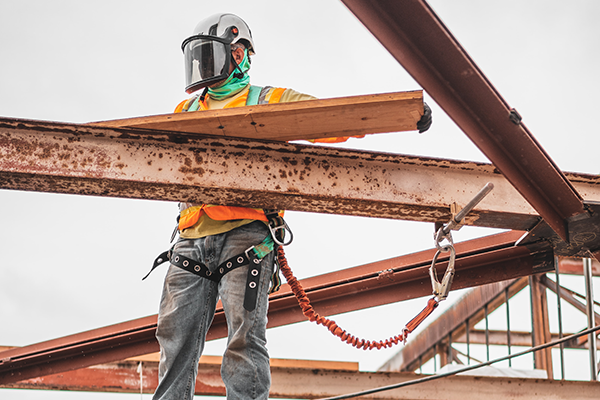Ladder Fall Compensation Claims
NoWinNoFee.com is a claims management company that helps people claim compensation for an accident or injury that wasn't their fault
With no win no fee agreements (also known as a Conditional Fee Arrangements, or CFAs), there are no upfront legal fees, which means anyone who has been involved in an accident that wasn’t their fault can gain access to justice without any financial risk. Your solicitor only gets a fee if your claim is successful. If your claim isn't successful, you won’t pay your solicitor any legal fees.
If your case is successful, typically you will pay 25% (including VAT) of your compensation to your solicitor, although they will discuss any fees before starting your case. To ensure your claim is risk free, your solicitor may take out an insurance policy on your behalf. If you terminate the agreement, you may have to pay fees for the time already spent on your claim, or due to: lack of cooperation, misleading your solicitor, missing medical or expert examinations, or not attending court hearings.
There are some instances where you are not required to use the services of a claims management company, and are able to claim yourself, for free, directly via the relevant ombudsman/compensation scheme. These include:
- Criminal injuries: The Criminal Injury Compensation Authority (England, Wales, and Scotland) or the Criminal Injury Compensation Scheme (Northern Ireland)
- Minor road accidents: The Official Injury Claim Portal
- Accidents involving uninsured drivers: The Motor Insurers' Bureau
Ladder Fall Compensation Claims
Call now on 0800 234 6438
Falls from ladders can be caused by:-
- The ladder being too short
- An unstable ladder
- An incorrectly erected ladder
- A ladder that has not been opened all the way
- A worker’s feet slipping through the ladder’s rungs
- Flooring being too smooth and a ladder slipping
- A worker overreaching from a ladder
- A ladder breaking under the weight of a worker
- A ladder not being secured or “footed”
- A ladder being used when scaffold or a forklift cage would be more appropriate
The HSE (Health and Safety Executive) give guidelines and precautions on the use of ladders which include:-
- Assess the job to see which equipment is appropriate and only use ladders for short duration and low risk jobs.
- Ensure that ladder is secure and cannot slip – It should be tied at the top and be held at the bottom by someone.
- The ladder should be place on a firm, stable surface.
- A stand spreader bar or adjustable ladder leveller should be used where appropriate.
- The ladder should be “angled out one measure for every four up” – 75 degrees.
- Do not work from the top three rungs but use a ladder that protrudes 1m or 3 rungs above where you need to work.
- Inspect the ladder before use to check for defects.
- Only allow people to use the ladder who know how to use it correctly and safely.
Employers are responsible for providing the correct equipment for a job, for training employees and for providing adequate protection and safety measures, but employees need to take responsibility too and make sure that they use the right ladder for the task and that they follow their training and the rules that are in place. Some accidents are caused by employees being too lazy to follow the rules, like putting on a safety harness or just grabbing the nearest ladder, whether it is appropriate for the job or not.
Starting a claim for a ladder fall injury
If, however, you or a loved one has suffered injuries from a ladder fall that was caused by your employer not providing training, or the appropriate equipment or safety gear, then you should be entitled to claim for personal injury compensation. A fall from a height can leave you in pain, with long term health concerns, with a disability and with lots of expenses or lost earnings. Accident compensation could give you and your family a better quality of life and make up for lost earnings and future earnings.
If your fall was not your fault, you need to seek advice from an injury lawyer with experience in claiming compensation for accidents at work. Your claim needs to be made within 3 years, but the sooner the better so that everything is fresh in your mind and those of any witnesses. Speak to someone today about your accident.


